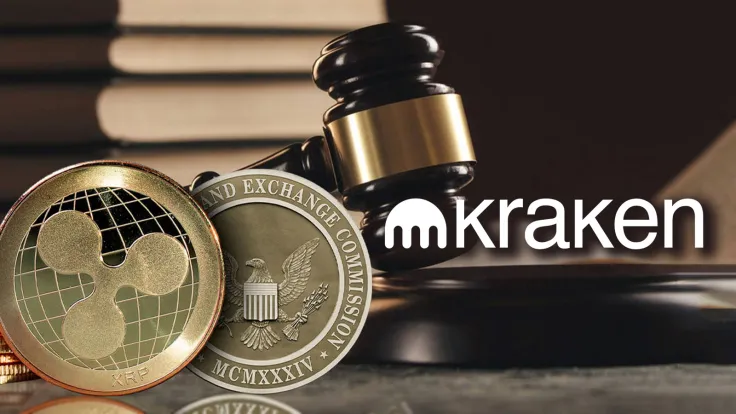
Cryptocurrency exchange Kraken outlined its defense against the U.S. Securities and Exchange Commission (SEC), invoking a previous court case involving Ripple Labs.
Kraken's argument hinges on the assertion that the SEC has failed to establish a direct relationship between the issuers of certain tokens, which the SEC deems 'crypto asset securities,' and the buyers on its platform.
The exchange's trading mechanism, which operates on a blind bid/ask system similar to Ripple's programmatic sales, is said to be beyond the purview of investment contracts—a point affirmed by Judge Analisa Torres in the Ripple case.
Kraken's stance challenges the SEC's classification of tokens like ALGO, ADA, and MATIC as securities, potentially impacting the broader regulatory landscape for digital assets.
Paralleling the Ripple case
Kraken's legal defense emphasizes the lack of direct connection between token issuers and buyers, which is a critical element in defining a security under U.S. law.
Bill Morgan, a legal expert, stressed how the Ripple case's judgment could complicate the SEC's ability to secure a settlement in the ongoing litigation with Ripple.
By paralleling the Ripple case, Kraken contends that the 11 tokens in question, which the SEC alleges are securities, do not meet the standard criteria of an investment contract, namely the expectation of profits driven by the efforts of the issuer.
This argument could prove to be a significant roadblock for the SEC if the judgment in the Ripple case is upheld without a successful appeal.
Kraken's response to alleged SEC retaliation
Kraken CEO Jesse Powell took to X to express his concerns over the SEC's lawsuit, which he views as retribution following the exchange's congressional testimony on the SEC's overreach in the crypto industry.
On May 10, 2023, Kraken testified before two House committees, arguing for a more precise legal framework for digital assets and suggesting a limitation on the SEC's jurisdiction.
The subsequent legal action by the SEC was interpreted by Powell as intimidation and an attempt to delegitimize the exchange.
Kraken's motion to dismiss the lawsuit contends that the SEC's complaint lacks substance, failing to identify any direct 'investment contract' between token buyers and issuers, thereby not meeting the established criteria set forth in the Howey Test.

 Caroline Amosun
Caroline Amosun Denys Serhiichuk
Denys Serhiichuk Gamza Khanzadaev
Gamza Khanzadaev Godfrey Benjamin
Godfrey Benjamin Alex Dovbnya
Alex Dovbnya